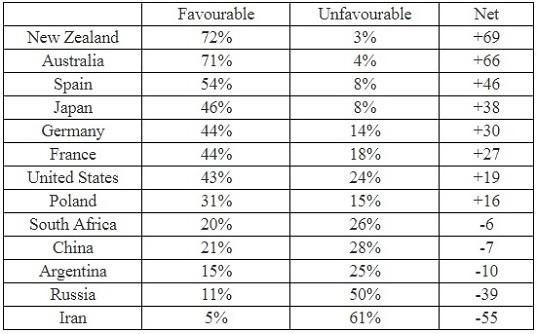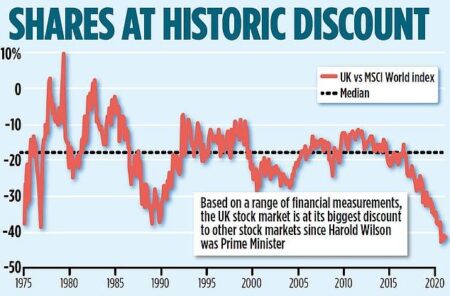In an era marked by shifting geopolitical alliances and evolving international dynamics, new insights reveal the enduring bonds between the United States and its closest allies.according to a recent AP-NORC survey, the United Kingdom and Canada emerge as the foremost partners of the U.S., underscoring longstanding relationships rooted in shared values, ancient ties, and mutual interests. This article delves into the findings of the survey, exploring the implications of these close alliances in the realms of trade, defense, and diplomacy, while also examining how public perceptions of these partnerships reflect broader trends in global politics. As the world navigates complex challenges,understanding the intricate relationships between these nations provides crucial context for future collaborations and policy decisions.
The Historical Ties Between the US, UK, and Canada
The historical ties among the three nations are rooted deeply in their shared origins, cultural affinities, and collaborative endeavors. The United States declared independence from British rule in 1776, but this event did not sever the connections formed over centuries of colonization and mutual influence. The legacy of British colonialism is evident in the legal and political systems of both Canada and the US, where parliamentary democracy and common law principles prevail. This common heritage has fostered strong diplomatic relations, underscored by the establishment of treaties and agreements that promote economic and military cooperation.
Throughout history, the US, UK, and Canada have navigated global challenges as allies. Key moments include their cooperation during World Wars I and II, the Cold War, and in contemporary conflicts.The North American Free Trade Agreement (NAFTA) and its successor, the United States-Mexico-Canada Agreement (USMCA), serve as modern examples of their intertwined economies.Collaborative defense initiatives through organizations like NATO and intelligence-sharing via the Five Eyes alliance further exemplify their commitment to mutual security. These alliances not only illuminate the bonds between nations but also showcase a unified approach to ensuring stability and prosperity across the continent and beyond.
Key Areas of Collaboration in Defense and Security
Collaboration in defense and security among the United States, the United Kingdom, and Canada is underscored by mutual interests and strategic initiatives. A few key areas exemplifying such partnerships include:
- Intelligence Sharing: Enhanced cooperation in intelligence operations facilitates timely responses to global threats.
- Joint Military Exercises: Regularly scheduled training and exercises strengthen military readiness and interoperability.
- Cybersecurity Initiatives: Collaborative efforts bolster defenses against cyber threats and improve threat detection capabilities.
In addition to these foundational areas, significant investment in advanced technologies plays a crucial role in maintaining an edge over adversaries. A closer look at recent developments reveals:
| Technology Area | Recent Advancement |
|---|---|
| Artificial Intelligence | Integration of AI for predictive analytics in defense strategies. |
| Drone Technology | Joint development of drone surveillance systems for border control. |
| Advanced Weaponry | Cooperative research on multi-domain warfare capabilities. |
Public Perception and Its Impact on Future Alliances
Public perception plays a crucial role in shaping international alliances, particularly in the context of the United States’ longstanding relationships with the UK and Canada. Survey data indicates that citizens in all three nations view these alliances through a lens of shared values, cultural ties, and historical connections. Factors influencing this perception include:
- Common Political Ideologies: Many citizens resonate with the democratic values and governance structures prevalent in these countries.
- Economic Partnerships: Trade agreements and mutual economic interests further solidify the bonds between these nations.
- Collaborative Defense Strategies: Joint military initiatives and participation in international peacekeeping missions enhance trust and cooperation.
As public sentiment shapes policies and, by extension, alliances, the implications for future collaboration among these countries are significant. with trust and familiarity already established, the potential for addressing global challenges cooperatively is promising. Moreover, as new global threats emerge, these ties may deepen further through:
- Enhanced Diplomatic Engagement: Regular summits and discussions can reinforce commitments.
- Joint Innovation Initiatives: Collaborating on technology and climate solutions can yield substantial benefits.
- Citizen Diplomacy: Fostering connections at grassroots levels may enhance mutual understanding and support.
Strategies for Strengthening trilateral Relations in a Changing World
In today’s rapidly evolving global landscape, the trilateral relationship between the United States, the UK, and Canada requires innovative strategies to adapt and thrive. to enhance collaboration and mutual benefits, it is indeed essential to focus on areas of common interest that can rally all three nations.Some effective approaches include:
- Joint Security initiatives: strengthening defense cooperation through shared intelligence and joint military exercises can help address emerging security threats.
- Economic Collaboration: Formulating trade agreements that support innovation and sustainability can bolster economic ties and create shared prosperity.
- Cultural Exchange Programs: promoting shared cultural initiatives can deepen mutual understanding and recognition among citizens.
- Climate Change Commitment: Working together on environmental policies and projects can showcase a united front in mitigating global challenges.
Furthermore, enhancing dialog channels among leaders and citizens alike will be crucial for fostering a sense of unity and shared purpose. In this regard, establishing a regular trilateral dialogue forum can facilitate open discussions and quick responses to global issues. A proposed framework might include:
| Focus Area | objectives | Expected Outcome |
|---|---|---|
| Security | Strengthen military alliances | Enhanced regional stability |
| Economy | Encourage cross-border trade | Increased economic growth |
| Culture | Promote arts and media exchange | Greater cultural appreciation |
| Environment | Joint environmental initiatives | Better climate action |
To Wrap It Up
the results from the AP-NORC survey underscore the enduring bonds between the United States and its closest allies, the UK and Canada. As geopolitical dynamics continue to evolve, these relationships remain crucial in addressing shared challenges such as security, trade, and climate change. The survey highlights not only the historical ties that have shaped these alliances but also the contemporary perspectives that reinforce their significance in a rapidly changing world. As the U.S. navigates its foreign policy, the importance of collaboration with the UK and Canada will likely continue to play a pivotal role in fostering stability and mutual prosperity on the global stage.Understanding these alliances is essential for comprehending the broader geopolitical landscape and the potential for future cooperation among these three nations.




